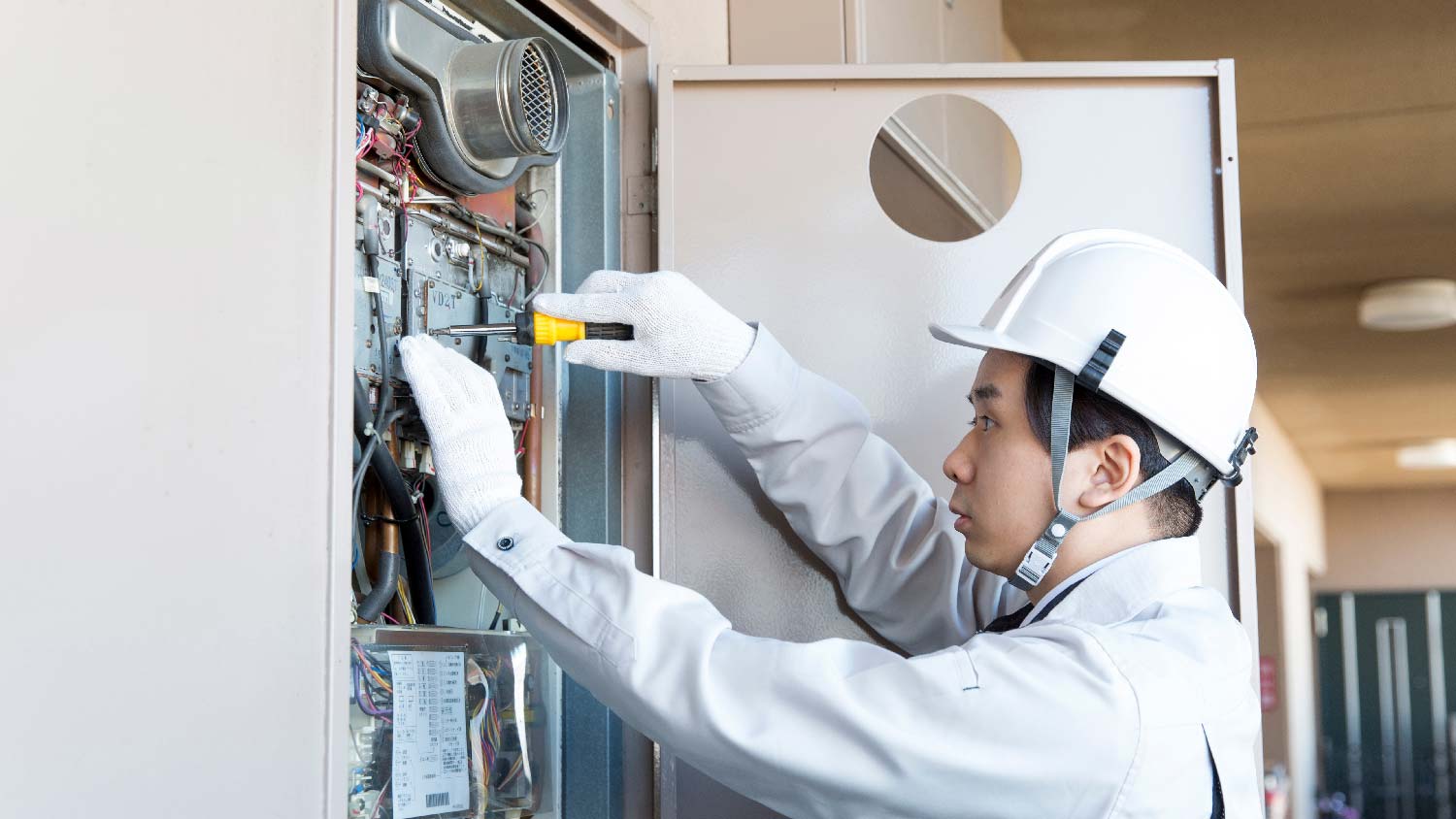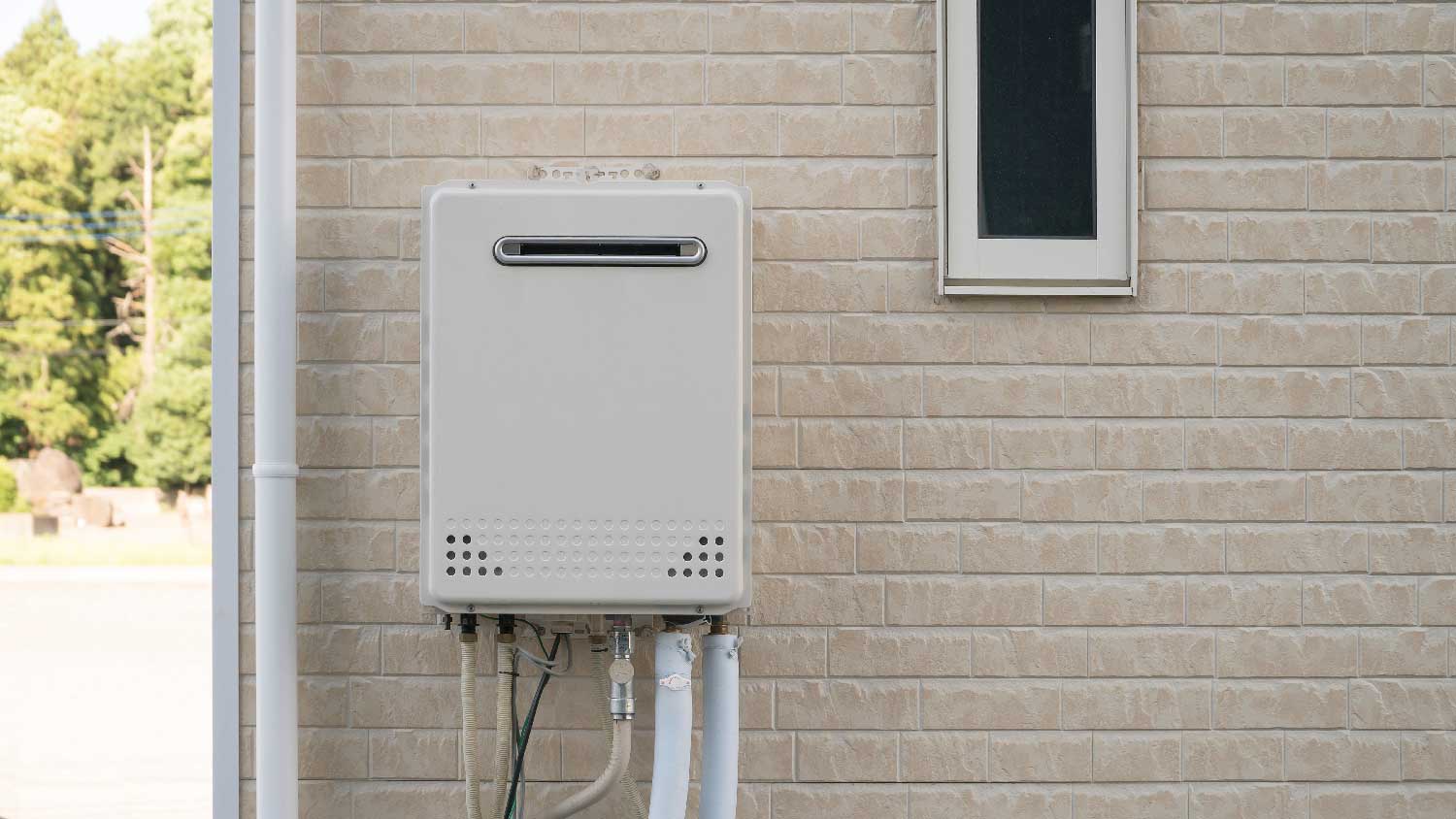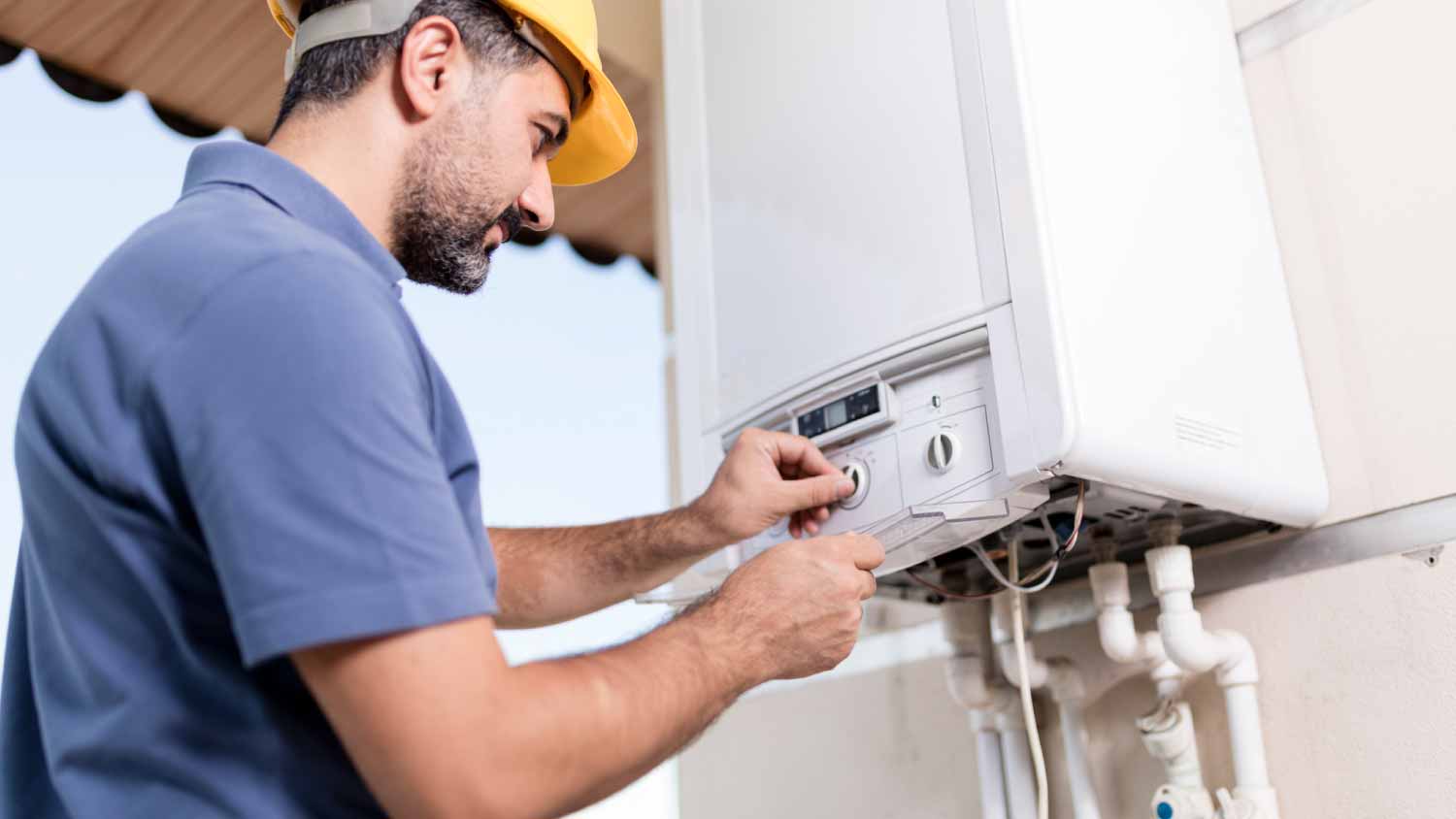What to Do if Your Tankless Water Heater Freezes
Unfreeze your tankless water heater before it is too late


Did you have an unexpected cold wave? Were this winter’s temperatures historically low? Even if you’ve properly winterized your tankless water heater, it may freeze for reasons beyond your control. If unnoticed or untreated, the freeze can damage your tankless water heater, and you may need a full replacement. Therefore, make sure you know what to do if your tankless water heater freezes so you can address the situation before things get worse.
Why Did My Tankless Water Heater Freeze?
Below-freezing temperatures are the number-one reason causing your tankless water heater to freeze. Most newer models have built-in freeze-prevention mechanisms and will keep the unit warm as long as there is power. Meanwhile, older models are more prone to freezing if left untouched for days or weeks.
How Much Does it Cost to Repair a Tankless Water Heater?
On average, it costs $375 to repair a tankless water heater. However, depending on the severity, that price tag can go over $1,000. Problems a plumber can fix include leakage, insufficient pressure, clogging, loud noise, rust, mold and contamination, and electric issues.
If the freeze leads to severe mechanical damage, you will have to replace the tankless water heater. A new tankless water heater costs $2,538 on average. The price depends on size, fuel type, quantity, and on-site issues. Therefore, unfreezing the water heater as soon as possible is crucial to prevent further expenses.
Signs of a Frozen Tankless Water Heater

You will know something is wrong with your tankless water heater if there is a disruption in your hot water supply. Another indication is if no water comes from the hot water tap. Your tankless water heater may have frozen if you hear a loud rumbling noise when the water heater is running.
What to Do if Your Tankless Water Heater Freezes
Your water heater has frozen, but hope remains. Follow the steps below to quickly thaw out your tankless water heater and determine your next steps.
1. Disconnect the Unit
Turn off your unit and cut the power at the circuit breaker before doing anything to your tankless water heater if you think it's frozen. Next, turn off the gas valve if you have a gas-powered tankless water heater. Finally, turn off the water valves.
2. Let the Unit Thaw
Place a small space heater next to the tankless water heater to help it thaw faster. Avoid extreme temperature raises, such as pouring hot water onto the unit, because the temperature difference could damage the mechanism.
3. Drain the Unit
Once your tankless water heater is fully thawed, drain the remaining water completely. Turn a hot water tap on to release the pressure, and make sure you have a bucket to catch the thawed water. Remove the drain cap to drain the water heater.
4. Test Run
Once the unit is fully thawed, you can do a test run. Reconnect the power and open the unit’s water and gas valves. Set the tankless water heater to a lower water flow and wait for the water to heat up.
You should look for any signs of damage during the test run. Contact a professional immediately if you see water leaking, hear any abnormal noises, or notice any clogging.
How to Prevent Your Tankless Water Heater from Freezing

Winterizing your tankless water heater is one of the most effective ways to prevent future freezing. Insulate the pipes connected to your water heater and set the device to run on a lower water flow. Pay attention to the weather forecast and drain the tankless water heater before a cold wave hits. You should also drain your heater if you are going out of town.
You should install your tankless water heater in a well-insulated area. You can also build an insulated box to contain the water heater to prevent freezing. A small space heater is another great solution, especially if your tankless water heater sits in a cold basement.
Many tankless water heaters have a built-in freeze-protection system as long as there is a power supply. You can also install a freeze protection solenoid valve to your tankless water heater. It opens automatically to prevent freezing in the case of a power outage.
DIY vs. Hiring a Pro
You can easily thaw a frozen tankless water heater without additional help. However, if you’ve been gone for a while and returned to a frozen unit, chances are the freeze has caused damage to the device itself. That’s when you need to hire a water heater repair contractor.
When speaking with a contractor, be specific with your concerns. How long has your water heater been frozen? Have you tried to unfreeze the unit independently? Do you notice leakage and other plumbing issues around the unit?
Also, ensure your contractor is familiar with the type of tankless water heater you have. Someone familiar with a gas-powered water heater may be unfamiliar with an electric model.
Frequently Asked Questions
You won’t have hot water if your tankless water heater freezes. Either cold water will flow through the hot water tap, or there won’t be any water at all. However, your water heater may attempt to run regardless. In this case, you may hear a loud rumbling noise. Turn your tankless water heater off and address the issue immediately to prevent further damage to the unit.
Insulation provides additional protection for your tankless water heater. Even if the unit is installed inside the house, it’s still a good idea to wrap the unit up with insulation batts, especially if you live in cold climates. For outdoor units, you can build an insulated box around the tankless water heater for freeze protection.
Expect to spend at least thirty minutes to an hour for your tankless water heater to thaw. Using a small space heater can slightly speed up the process. If you believe the connecting pipes are also frozen, you can use a hairdryer to help the pipes thaw while your water heater is thawing. This may save you a decent amount of time.





- Can You Use a Tankless Water Heater in Cold Climates?
- How to Size a Water Heater
- Is a Water Softener for a Tankless Water Heater Necessary?
- How Does a Tankless Water Heater Work and What Sets It Apart?
- How to Spot a Frozen Water Heater and Fix Frosted Plumbing
- 6 Signs Of Water Heater Failure
- Why the Water Heater Keeps Tripping Breaker
- Can You Use Water if the Water Heater Is Leaking?
- Water Heater Installation Code Requirements and Violations You Should Know
- 6 Signs Your Water Heater Might Explode










